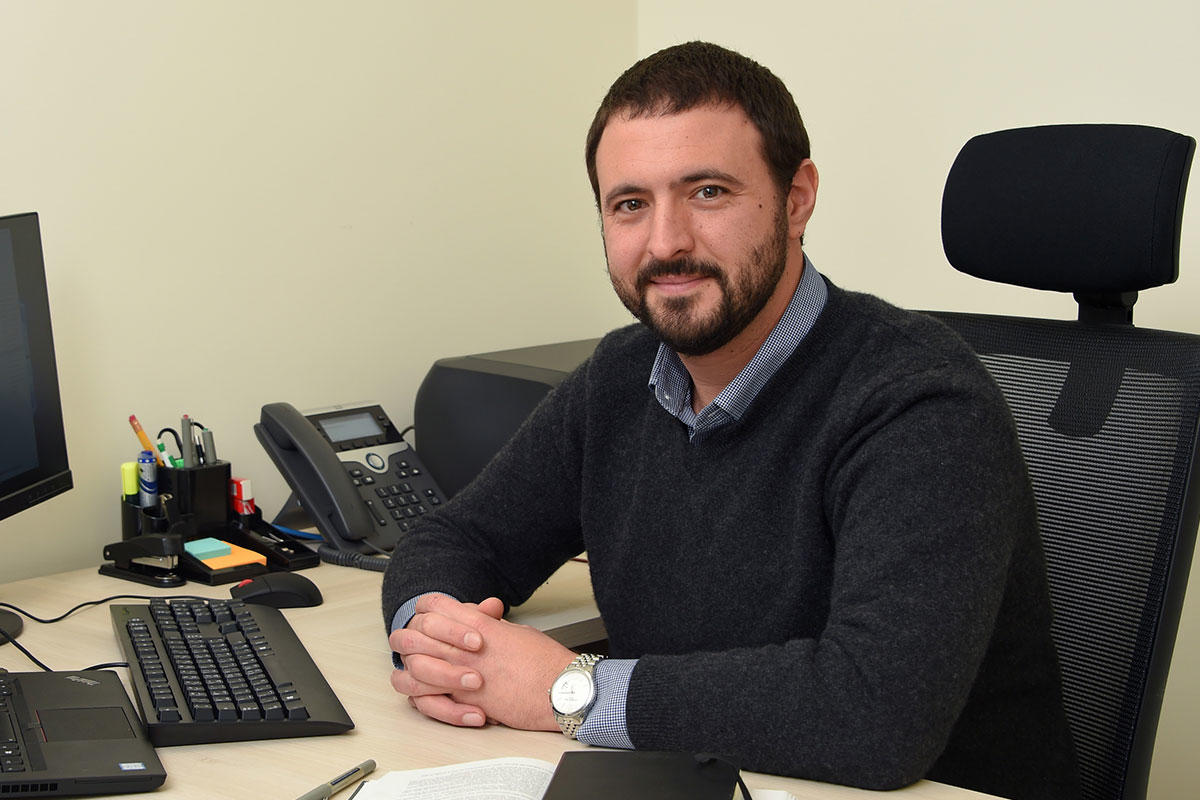SOE Faculty Wins Prestigious Grant
Dr. Moustapha Harb has big plans for sustainable wastewater management.
An internationally competitive research grant proposal by LAU’s own Assistant Professor of Civil Engineering Moustapha Harb was selected to receive more than €400,000 in funding by the Partnership for Research and Innovation in the Mediterranean Area (PRIMA) under the European Union’s Horizon 2020 Program.
This project, which will be led by Dr. Harb, is in collaboration with three other institutions: Universitat de València in Spain, Institut National des Sciences Appliquées de Toulouse in France, and Cairo University in Egypt. It focuses on advancing innovative and sustainable wastewater treatment technologies for improved water reuse practices in Lebanon and across the Mediterranean basin. Research will be conducted over a period of three years and will involve various levels of outreach and field work, which fall within LAU’s strategic plan to bolster its wealth of research while serving the wider community.
In the interview below, Dr. Harb shared more information on the project, specifically in terms of its background and next steps.
How did the grant come about?
I started by reaching out to a group of colleagues who are faculty members at universities in Spain, France and Egypt, whom I had selected for their specific expertise and my familiarity with their work. They confirmed their shared interest in submitting a proposal for the development of an emerging technology toward achieving safe and sustainable wastewater reuse. Based on this, I drafted the proposal drawing upon our collective research strengths, and we worked together on refining it for submission. The proposal was selected by PRIMA after review by their international review board.
What solutions and/or recommendations do you expect this research grant will offer, particularly with regard to Lebanon’s wastewater?
The exciting thing about this project is that we have an opportunity to advance an innovative technology to the point of full-scale, real-world applicability that can impact how we address wastewater treatment and water scarcity issues in Lebanon. Specifically, we will be pursuing sustainability through energy efficiency, nutrient recovery, and reusability of wastewater resources. We intend to achieve this by assessing and optimizing a technology known as the Anaerobic Membrane Bioreactor (AnMBR). This technology’s best feature is that, in addition to its process sustainability, it can be employed at a decentralized level – such as the town or community level – due to its simple operation and robust process.
In the Lebanese context, this works to our advantage because it would allow for treatment and reuse options that are outside of the centralized treatment paradigm, which currently is very energy-intensive and requires extensive expertise to operate.
In addition, we intend to ensure that this technology yields safe-to-use water for the designed applications, such as restricted and unrestricted irrigation, by testing it against emergent chemical and microbial contaminants. This project will involve laboratory investigations at all four participating institutions. Toward the later stages of the project, we hope to scale up this technology for testing in real-world applications. Depending on the results, we will produce a well-defined plan to disseminate our findings among public and private stakeholders, such as municipalities and entrepreneurs, to raise awareness about its availability.
What field work, if any, will this research entail?
We intend to sample waste streams from all over Lebanon and bring them back to the lab to perform treatment experiments. This is necessary in order to expand the applicability of this technology to as many diverse and difficult-to-treat waste streams as possible. Our partners at Cairo University will perform similar field sampling and testing to expand the relevancy of our work to other pollution-challenged environments of the Mediterranean region. To facilitate this, I will be travelling to Egypt to help with their experimental system design and setup.
Will your part of the research take place at the SOE, and will any LAU students be involved?
Given that this project is largely experimental, it will thoroughly utilize the well-equipped Environmental Lab of the Civil Engineering Department here at LAU. Certain analyses will also be performed on advanced instruments in the Chemistry and Biology Labs of the Department of Natural Sciences.
As part of this, I will be recruiting multiple new graduate students to operate the experimental wastewater treatment systems in the lab and to perform the required analysis as part of their thesis work. This is the aspect of the project that I am most looking forward to because it’s an opportunity to give our students exposure and expertise in one of the most globally relevant engineering and research fields out there today. As part of the project, I will be travelling with the graduate students to the universities in Spain and France for knowledge transfer and project coordination.
